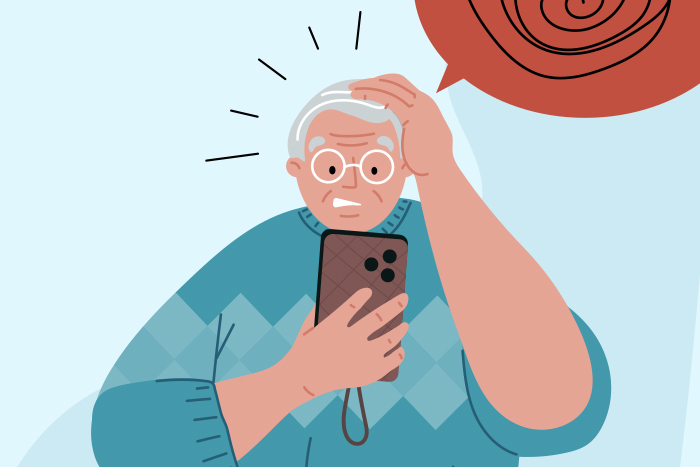I think I’ve been scammed—now what? A Step-by-Step Guide for Seniors
Being tricked by a scammer can feel upsetting, scary, and even embarrassing. But here’s something important to remember: Scams can happen to anyone.
If you’re 65 or older, you are not alone. Scammers often target older adults on purpose because they think they can take advantage of your trust, savings, or good manners. According to the National Council on Aging, older Americans lose billions of dollars each year to financial fraud.
But here’s the good news: if you act fast, you may be able to limit the damage—and protect yourself from future scams. This guide will walk you through what to do if you think you’ve been scammed.
Don’t Blame Yourself
First, take a deep breath. Feeling upset is normal, but remember: scammers are professionals. They are trained to trick people. They use fear, lies, and pressure to get what they want.
Many smart, careful people have been fooled—including doctors, lawyers, and even police officers. So don’t let shame or guilt stop you from taking action.
Stop Contact With the Scammer
If the scammer is still calling, texting, or emailing you, cut off all contact immediately.
Hang up the phone.
Don’t answer emails or texts.
Block the number or email if you can.
If someone is pressuring you to send more money, stop and tell someone you trust.
Report It Right Away
Reporting the scam is important. It can help you—and it can help others avoid the same trick. Here’s where to report:
Federal Trade Commission (FTC): Go to www.reportfraud.ftc.gov
Local Police Department: Especially if money was stolen or you gave out personal information.
Your Bank or Credit Card Company: If you sent money, call them right away. They might be able to stop the payment or reverse the charge.
Social Security Administration (if needed): If you gave out your Social Security number, call 1-800-772-1213.
Medicare (if needed): If your Medicare number was shared, call 1-800-MEDICARE.
Call Your Bank or Credit Card Company
If you gave out your bank account, credit card, or debit card numbers, you need to:
Call the bank or card company right away
Ask them to freeze or close the account
Request a new card or account number
Many banks have fraud protection services. The sooner you act, the more likely they can help recover your money.
Monitor Your Accounts and Credit
Watch your bank statements, credit cards, and even your credit report.
You can check your credit report for free at www.annualcreditreport.com.
Look for accounts you don’t recognize or charges you didn’t make. If something looks wrong, report it right away.
Talk to Someone You Trust
Scammers want you to stay silent. But telling a family member, friend, or trusted neighbor can help you feel supported—and may prevent more problems.
If you feel overwhelmed, talk to your doctor or a counselor. There is no shame in being the victim of a scam.
Learn From the Experience
Once the shock fades, it’s okay to look back and learn. Ask yourself:
How did the scammer contact me?
What did they say to earn my trust?
What could I do differently next time?
By understanding what happened, you’ll be more prepared in the future.
You’re Not Alone, and You’re Not Helpless
Getting scammed is painful—but it doesn’t mean you’re weak or foolish. It means you were targeted by someone skilled at lying. What matters most is what you do next.
Take action. Tell someone. And remember, you still have the power to protect yourself and others.
Helpful Resources
Federal Trade Commission (FTC)
Report scams or fraud at www.reportfraud.ftc.gov.AARP Fraud Watch Network
Learn how to spot and avoid scams at https://www.aarp.org/money/scams-fraud/.National Council on Aging (NCOA)
Info on protecting older adults from scams can be found at https://www.ncoa.org.IdentityTheft.gov
If your identity is stolen, head to www.identitytheft.gov.

